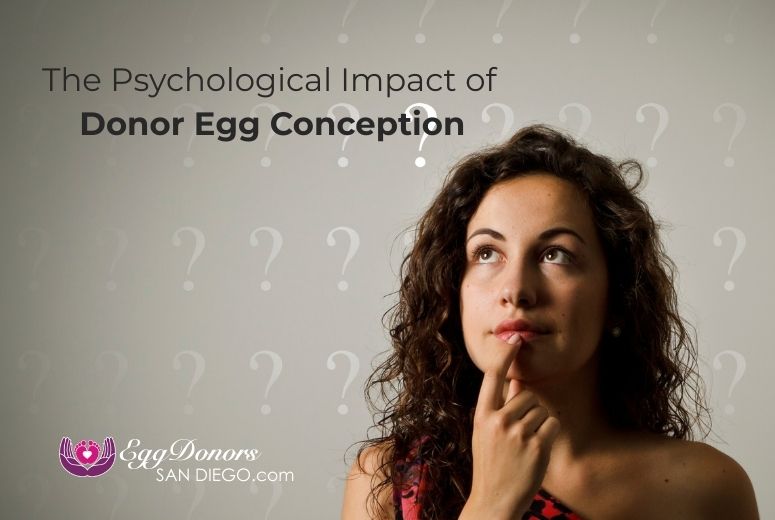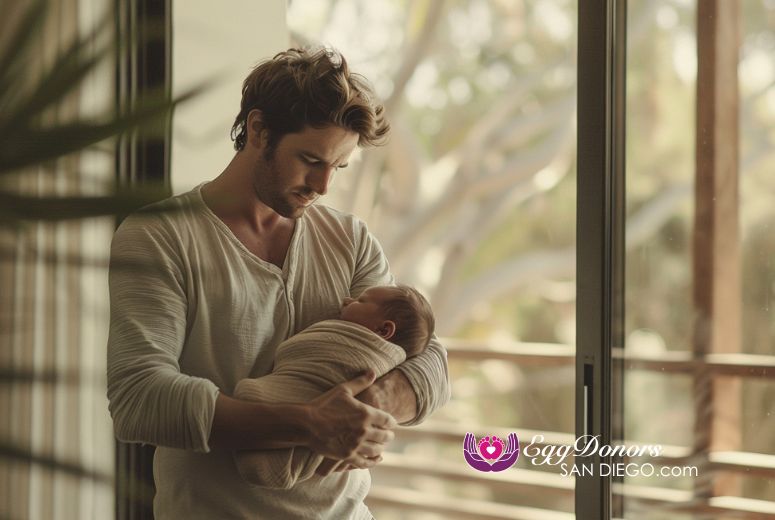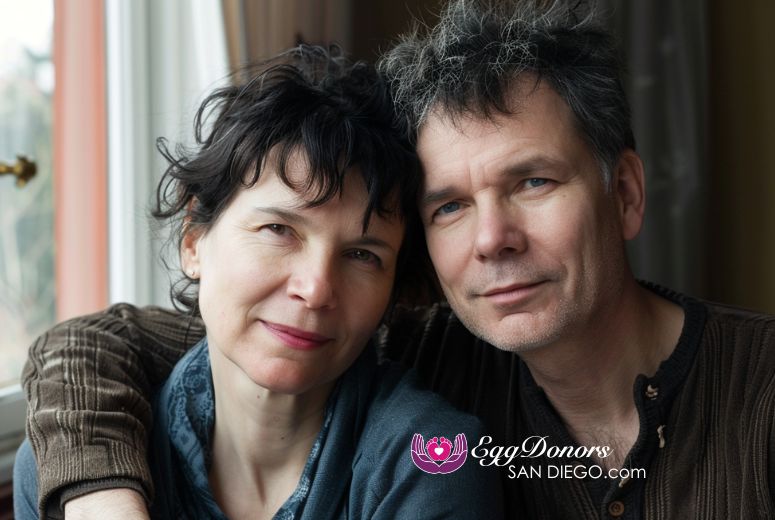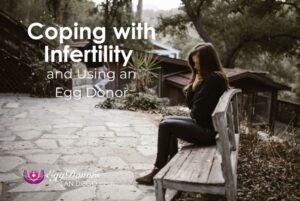Egg donation has revolutionized fertility treatment, offering hope to individuals and couples struggling with infertility. While the medical aspects of IVF with donor egg are well-documented, the psychological impact of donor egg conception is often less discussed. Understanding the emotional and mental health dimensions of this process is crucial for parents navigating this transformative journey.
“The psychological well-being of our patients is just as important as the physical success of IVF. Families who are informed and supported emotionally throughout egg donation experience greater confidence and fulfillment,” shares Dr. Minoos Hosseinzadeh, Founder and Medical Director at Fertility Institute of San Diego.
What Is the Psychological Impact of Donor Egg Conception?
The psychological impact of donor egg conception encompasses the complex emotional and cognitive experiences of individuals using donor eggs to conceive. Parents may face feelings of uncertainty, and confusion, even amidst excitement and hope.
How It Manifests
- Anxiety from the pressure to choose the “right” donor
- Concerns regarding correctly answering extended families questions about the process
- Emotionally managing the ups and downs of the egg donor process
- Navigating your fears of the unknown
Infertility and fertility treatment can be emotionally taxing. Adding donor egg usage introduces a layer of complexity that affects both parents and extended family dynamics.
Why Understanding the Psychological Impact Is Important
Acknowledging and addressing the psychological impact of donor egg conception ensures that families are prepared for the emotional journey. Fertility clinics increasingly integrate counseling and mental health support alongside IVF with donor egg to foster empowerment and family cohesion.
“When patients understand the genetics and inheritance patterns involved and receive emotional support, they are more equipped to the process without lingering anxiety,” explains Dr. Hosseinzadeh.
Who Is Affected?
The psychological impact of donor egg conception primarily affects:
- Recipients of donor eggs
- Partners supporting the recipient
- The extended family and friends of the recipients of donor eggs
While children conceived via egg donation should be made aware of their origins, parents’ emotional experiences influence family dynamics, and overall family planning.
When Does This Psychological Impact Occur?
Emotional challenges can arise at multiple stages:
- Pre-treatment: Anxiety about choosing the “right” donor, IVF success rates, and lack of clarity regarding the process
- During IVF: Stress related to procedures, medications, and anticipation
- Post-birth: Processing overwhelming feelings of gratitude to the egg donor, and considering disclosure of egg donation to the baby.
Early engagement with a fertility clinic that emphasizes both medical and psychological care can mitigate challenges.
Common Symptoms
Patients may experience a range of emotional and psychological symptoms:
- Anxiety
- Feelings of fear
- Concerns regarding a healthy baby
- Stress impacting relationships and daily functioning
Recognizing these symptoms allows families to seek targeted support and interventions.
Causes and Contributing Factors
Several factors contribute to the psychological impact of donor egg conception:
- Personal infertility history
- Outcome expectations
- Previous IVF attempts or fertility treatment challenges
- Limited awareness of donor egg processes and outcomes
Understanding these causes helps patients prepare mentally and emotionally for the IVF journey.
Complications
Unaddressed psychological stress can lead to:
- Relationship strain between partners
- Increased risk of postpartum depression or anxiety
- Emotional fatigue affecting overall family planning satisfaction
Early intervention and proactive emotional care mitigate these complications significantly.
Factors to Consider
- High success rates with egg donation.
- Positive emotional well-being for donor-conceived children.
- Strong parent–child bonds are proven.
- Often more affordable than adoption.
Prevention and Support Strategies
- Fertility Counseling: Tailored sessions addressing the unique concerns of donor egg recipients
- Support Groups: Connecting with other families navigating donor egg conception
- Educational Resources: Understanding donor egg genetics, inheritance, and expected outcomes
- Communication Planning: Deciding when and how to discuss egg donation with family and children
- Mindfulness & Stress Management: Techniques to reduce anxiety and improve emotional resilience
“Support strategies are critical,” says Dr. Hosseinzadeh. “We guide our patients in coping with donor egg conception so they feel empowered rather than overwhelmed.”
Types of Treatment and Therapy
- Family Therapy: Strengthens relationships
- Peer Support Programs: Connect parents with similar experiences
- Mindfulness and Relaxation Techniques: Reduce stress during IVF procedures
- Integrated Fertility Clinic Support: Combines medical care with mental health guidance
FAQs
No, all of the research shows that the bond between parents and donor conceived children are as strong, if not stronger, than traditionally conceived children.
Yes, Research shows age-appropriate, open communication fosters trust and identity security.
Yes. This process can be stressful and no one in the relationship is exempt. However, with compassion, support, and counseling it can actually strengthen your relationship.
Reputable fertility clinics like EggDonorsSanDiego.com provide both educational resources and personalized emotional support.









